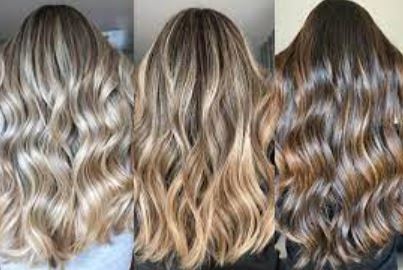Table of Contents
- 1 Understanding the Genetics of Hair Color
- 2 Hair Pigment: Melanin
- 3 Predicting Hair Color: Parental Traits
- 4 Other Genetic Factors
- 5 Common Hair Color Combinations
- 6 Exceptions and Unpredictable Outcomes
- 7 Tips for Expecting Parents
- 8 Hair Color Changes with Age
- 9 Influence of Hair Color on Personality
- 10 Nurturing Self-Confidence
- 11 Conclusion
- 12 FAQs – What Color Hair Will My Baby Have
Bringing a new life into the world is an exciting and joyous journey for expectant parents. Amid the anticipation and curiosity, one common question often arises: “What color hair will my baby have?”
The color of a baby’s hair is determined by a combination of genetic factors inherited from their parents.
While there’s no guaranteed answer, understanding the genetics behind hair color can offer insights into the potential outcomes.

Understanding the Genetics of Hair Color
To comprehend how hair color is inherited, it’s essential to grasp the basics of genetics. Our DNA contains genes that determine various physical traits, including hair color.
These genes come in pairs, with one allele inherited from each parent. The interaction of these alleles results in a specific hair color.
Hair Pigment: Melanin
The primary pigment responsible for hair color is called melanin. Melanin exists in two main forms: eumelanin, which provides black and brown colors, and pheomelanin, responsible for red and blonde shades.
The varying proportions of these pigments give rise to the diverse spectrum of hair colors we see.
Predicting Hair Color: Parental Traits
Predicting a baby’s hair color involves analyzing the parental traits. If both parents have the same hair color alleles, the baby is likely to inherit that hair color.
However, if the parents have different alleles, the dominant one may prevail, leading to a different hair color.
Using Punnett squares, geneticists can visualize the possible combinations and the probability of the baby inheriting specific hair color genes from each parent.
Other Genetic Factors
Apart from the primary hair color genes, other genetic factors can influence hair pigmentation. Genetic mutations may arise, leading to unexpected hair color outcomes that differ from the parents’ colors.
Environmental Factors
While genetics plays a vital role, environmental factors can also impact hair color. Exposure to sunlight and other environmental elements may cause subtle changes in hair pigmentation.
Common Hair Color Combinations
Certain hair color combinations are more prevalent due to the distribution of hair color alleles in different populations.
For instance, two brunettes may still have a blonde-haired baby if both carry a recessive blonde allele.
Exceptions and Unpredictable Outcomes
While genetics provide a general guide, there are exceptions. Sometimes, babies may have hair colors that aren’t directly predictable from their parents’ traits. This unpredictability can be attributed to more complex genetic interactions.
Tips for Expecting Parents
For parents curious about their baby’s hair color, the best approach is to embrace the uncertainty.
Remember that hair color does not define a child’s worth or potential. Focus on preparing for the arrival of a healthy and happy baby.
Hair Color Changes with Age
It’s essential to recognize that a baby’s hair color may change as they grow older. Many babies are born with light-colored hair that eventually darkens or vice versa.
Cultural Perceptions of Hair Color
In some cultures, certain hair colors may hold particular significance or be associated with specific traits. However, it’s crucial to challenge such stereotypes and embrace the uniqueness of each individual.
Hair Care for Babies
Regardless of hair color, a baby’s hair requires gentle care. Use appropriate baby-safe products and avoid harsh chemicals or styling methods.
Influence of Hair Color on Personality
There is no scientific evidence supporting a direct link between hair color and personality traits. It’s essential to debunk these myths and appreciate the diversity in human characteristics.
Nurturing Self-Confidence
Parents play a significant role in nurturing their child’s self-confidence. Encourage self-esteem and body positivity, emphasizing that external appearances do not define a person’s worth.
Conclusion
The color of a baby’s hair is a natural outcome influenced by genetics and environmental factors.
While it’s exciting to wonder about a baby’s hair color, the most important thing is to welcome and love the newest addition to the family, regardless of their hair color.
FAQs – What Color Hair Will My Baby Have
Can I predict my baby’s hair color accurately?
While genetics offers some insights, hair color prediction is not always precise due to complex genetic interactions.
What factors contribute to hair color changes?
Environmental factors, genetic mutations, and aging can all contribute to changes in hair color.
Does hair color impact a child’s identity?
Hair color does not define a child’s identity or personality; it’s just one aspect of their appearance.
Can hair color change after birth?
Yes, many babies’ hair colors change in the months following birth.
How can I support my child’s self-confidence?
Encourage self-esteem and body positivity, emphasizing that true beauty comes from within.




